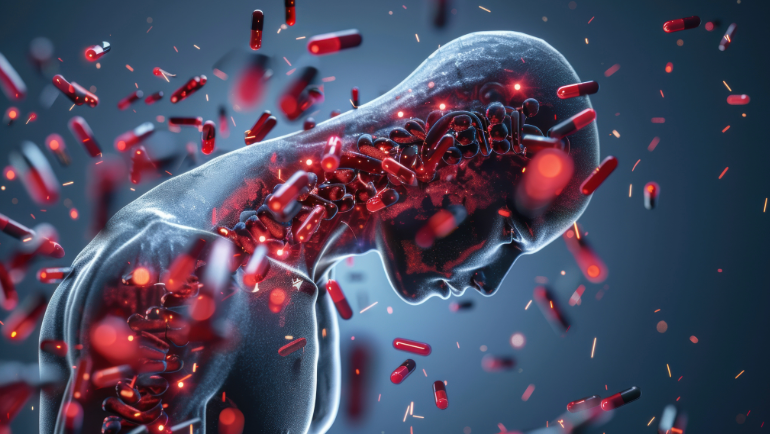New research explores potential treatments for chronic diseases and cancer

DETROIT — A recently published study led by Wayne State University on a new approach to understanding chronic inflammation could lead to new advancements in the treatment of many debilitating medical conditions, including cancer.
The study, “Distinct etiology of chronic inflammation – implications on degenerative diseases and cancer therapy,” was published in Frontiers in Immunology by Krishna Rao Maddipati, Ph.D., professor of pathology in the School of Medicine and director of the Lipidomics Core Facility.
Maddipati’s research suggests that chronic inflammation is not merely a continuation of acute inflammation, which results from injury or disease, but that the two may have different origins within the body.
“This new hypothesis is called unalamation,” said Maddipati. “The compounds that lead to inflammation in our body are always present in everyday healthy physiology, but they are under the control of anti-inflammatory compounds. Acute inflammation results from an increase of the inflammatory compounds at the site of an injury. However, chronic inflammation, according to my studies, comes from a decrease of the anti-inflammatory compounds in a normal healthy physiological state. Because the balance of inflammatory and anti-inflammatory compounds helps maintain a normal health state, the goal of treatment for chronic inflammation may not be to decrease inflammatory compounds but to find a way to increase anti-inflammatory compounds.”
Acute inflammation is characterized by body temperature increases, swelling, redness and pain. Maddipati believes that looking at acute inflammation and chronic inflammation as having two separate causes could lead to vastly different, and potentially more effective, treatments for a variety of diseases, including cancer.
“Non-steroidal anti-inflammatory drugs, or NSAIDs, may not be as effective with chronic inflammation like they are with acute inflammation,” said Maddipati. “Most physicians think chronic inflammation is behind cancer development. If chronic inflammation is different than acute inflammation, it means that cancer treatment may need to be approached in a completely different way.
“The current mindset in treating cancer is to decrease inflammatory compounds, but anti-inflammatory compounds are still helping tissue proliferate so continued growth, including the growth of cancer tissue, may continue. If you inhibit anti-inflammatory compounds, the body may attack the growing tissue and clear it in an inflammatory response. It is important to remember that inflammation is a defense mechanism of the body. Inducing inflammation, in the proper way, may fight cancer by encouraging the body’s own immune responses.”
To read the full paper, visit https://www.frontiersin.org/journals/immunology/articles/10.3389/fimmu.2024.1460302/full.
# # #
About Wayne State University
Wayne State University is one of the nation’s pre-eminent public research universities in an urban setting. Through its multidisciplinary approach to research and education, and its ongoing collaboration with government, industry and other institutions, the university seeks to enhance economic growth and improve the quality of life in the city of Detroit, state of Michigan and throughout the world. For more information about research at Wayne State University, visit research.wayne.edu.
Wayne State University’s research efforts are dedicated to a prosperity agenda that betters the lives of our students, supports our faculty in pushing the boundaries of knowledge and innovation further, and strengthens the bonds that interconnect Wayne State and our community. To learn more about Wayne State University’s prosperity agenda, visit president.wayne.edu/prosperity-agenda.
Contact info
Julie O'Connor
Director, Research Communications
Phone: 313-577-8845
Email: julie.oconnor@wayne.edu